By Kelly Kennedy, LPC
One of the most acclaimed benefits of residential treatment at Sierra Tucson, is the extensive range of treatment programs and treatment modalities utilized. In addition to traditional therapies, much attention is given to varying forms of Experiential therapies and Integrative therapies, which work together to help patients resolve underlying issues.
For example, depression is viewed as a behavior that is engaged in, not something that happens to someone (the patient, they depress themselves). Patients are not victims of their depression. When working with patients using an experiential focus, change can be dramatic. Patients can change in the course of an hour-long session, especially when they allow themselves to express their feelings and not justify, rationalize, explain them away, or state “I know this is negative, I know I shouldn’t think this.” We have found this creates more despair and angst, and it gives patients another example of proof, validating their false cognitions of worthlessness.
An Emotional Release: Anger Becomes a Positive Emotion
This is especially true when working with patients’ anger in Experiential Therapy. In this workshop we endorse the adage, “Lose Your Mind and Come to Your Senses.” Through this modality of treatment, anger is viewed as a positive emotion when expressed appropriately in a safe, therapeutic environment with appropriate direction and containment. This is particularly true of old angers. They become the emotion of change.
Despite the profoundly positive effects of Experiential Therapy on repressed anger, many therapists shy away from this approach, which becomes very clear when a patient enters into group therapy and the topic of anger comes up. Anger is a very powerful emotion and is scary to many people, including therapists. In order to effectively work with it, specialized training is needed. This training allows therapists to take this energy and convert it to a healing force instead of a destructive display of affect. The primary tools of this work are the Bataca, the Anger Cousin, and a box of Kleenex.
Counter Programming
Sierra Tucson’s Experiential Workshop is counter to what is therapeutically in vogue: Cognitive Behavioral Therapy (CBT). We believe this counter programming aspect of the workshop is part of what makes this work so effective. Other methods typically focused on sedating and calming the patient; they have failed to create the desired outcome — recovery. This Experiential method centers on really having patients focus on their feelings, where in their body they are felt (affect is experienced in the body), and then giving this expression.
When doing this, anger is usually one of the primary feelings to arise. Since anger is often seen as a taboo emotion, it gets stored in the body. It also has any number of negative myths associated with it, for example, that it is negative and destructive. What has been discovered is that when old, repressed anger gets triggered and then expressed, it frequently is destructive; but new, current anger is not.
In this approach, all emotions are viewed as equal but separate. We have found that, most of the time, anger will be coupled with either fear or pain. Most therapists relegate the anger portion of this two-sided coin to being secondary or insignificant. In terms of rapid change and clinical improvement, we have found the expression of anger to be most crucial. Through epidemiological observation, repressed anger has been seen to play a major role in all sorts of diseases, from cancer to ulcers to sexual problems. Repressed anger is very toxic, and no amount of logic changes this.
Many times, a patient wants to understand before doing the work. This is not helpful because our emotions have their own logic that is dictated by the older portion of the brain, which has the primary function of ensuring survival and will not be overruled by intellectual logic.
Spontaneous Change
This is not to say that cognition and understanding don’t have a part in this work; they just are as heavily used as in some other forms of therapy. When being certified in CBT, I asked the trainer if he ever saw spontaneous changes of cognition in therapy. He said never. With experiential/anger work, we see this with regularity, as well as seeing somatic changes, primarily in the face.
Once patients are able to free themselves of old, repressed anger, there is a tangible change of expression seen in patients. There is more life in their face and it softens, there is more life in the eyes, a dropping of the shoulders occurs, and an ease in their gait is seen as they walk. Emotionally, self-esteem increases, as does humility and compassion.
The Proficient Therapist
For a therapist to use Experiential Therapy to work with anger, several things are required. To really be proficient, the therapist must work with their own anger and pain in their raw forms. This teaches comfort with affect, clears the therapist’s vision, and lowers the likelihood of countertransference. For most people, this proposition is quite frightening. This is the primary objection to this form of work by therapists — fear of dealing with their own issues — and the vulnerability the therapist experiences in being in the moment with the patient while they are experiencing very primal and human emotion.
Some say this work is rehearsal for violence. When done by a therapist who has been trained in the theory of anger work (Experiential Therapy) and has done their own anger work, this work prevents violence.
The Demand for Forgiveness
Another point worth mentioning is the “demand” for forgiveness. We have heard many people say, “Oh, I forgave my perpetrator years ago. I just don’t understand why I have a drinking problem, can’t hold a job, and have been married three times.” With this approach, we believe that when we are done with the hurt and anger, forgiveness comes spontaneously, so it doesn’t have to be worked at.
In closing, I offer the thought: “When we suppress our anger, we end up suppressing all our emotions, and life becomes muted and dull. When we acknowledge and express our emotions, we rediscover a passion for life.”
Kelly Kennedy is a Unit Therapist at Sierra Tucson’s Progressions Program. He is a Licensed Professional Counselor (LPC) certified in Hypnotherapy and Cognitive Behavioral Therapy, a Gestalt Therapist, and is trained in Imago Relationship Therapy.
Sierra Tucson’s Experiential Workshop is run by Kelly Kennedy and Vicki Gannon.












